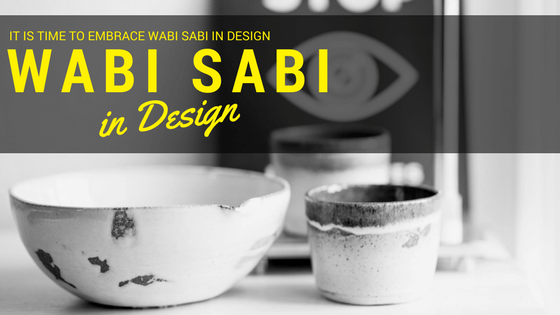Wabi Sabi is a traditional Japanese worldview that is rooted in the idea of the acceptance of transience and visual imperfection. The aesthetic thrives on the idea that imperfection in design is beautiful. The concept is derived from Buddhist philosophy of the three marks of existence that are impermanence, suffering, and emptiness or absence of self-nature.
Wabi Sabi in Design
Simple examples of wabi sabi in design are asymmetry, roughness, simplicity, and modesty. This can contradict the idea of minimalism that believes that the goal is to rid any design of all unnecessary objects and general clutter. Wabi Sabi is about the appreciation for items and objects that have blemishes or irregularities. Yet, wabi sabi does tend to eliminate some clutter but it also celebrates specific pieces that are imperfect.
Examples
Wood is a natural material that inherently has imperfections. Decor pieces or even furniture made from wood can evoke a sense of wabi sabi in a room because wood has natural imperfections. Ceramic pieces also can create a sense of wabi sabi in interior design. Clay sculptures made by hand can have natural imperfections throughout it. Whether it is a clay pot or a handcrafted sculpture, clay can embrace imperfection well.
Both the terms wabi and sabi suggests that the view of desolation and solitude is essential. Mahayana Buddhists see the universe should be viewed as positive characteristics, moving towards a simplistic lifestyle. Mahayana philosophy though wants that a genuine understanding of wabi sabi cannot be achieved verbally through language but it must also be understood through a nonverbal approach.
Pottery
In Japanese culture, pottery is at the heart of wabi sabi perspective. For example, Japanese tea ceremony, the bowls and cups are not quite symmetrical while the focus is more on the color, texture, and asymmetry of a given piece. This type of pottery is called Hagi ware which is derived from the town of Hagi, Yamaguchi. This pottery can be utilized in any kitchen to promote wabi sabi in a home.
Implementing wabi sabi pieces throughout a home can help you embrace the imperfections of yourself but also the environment you are in. This mindset transcends design and is effectively a powerful mindset to overcome expectations of perfection in daily life.
